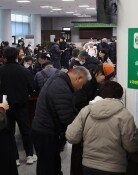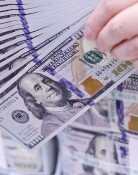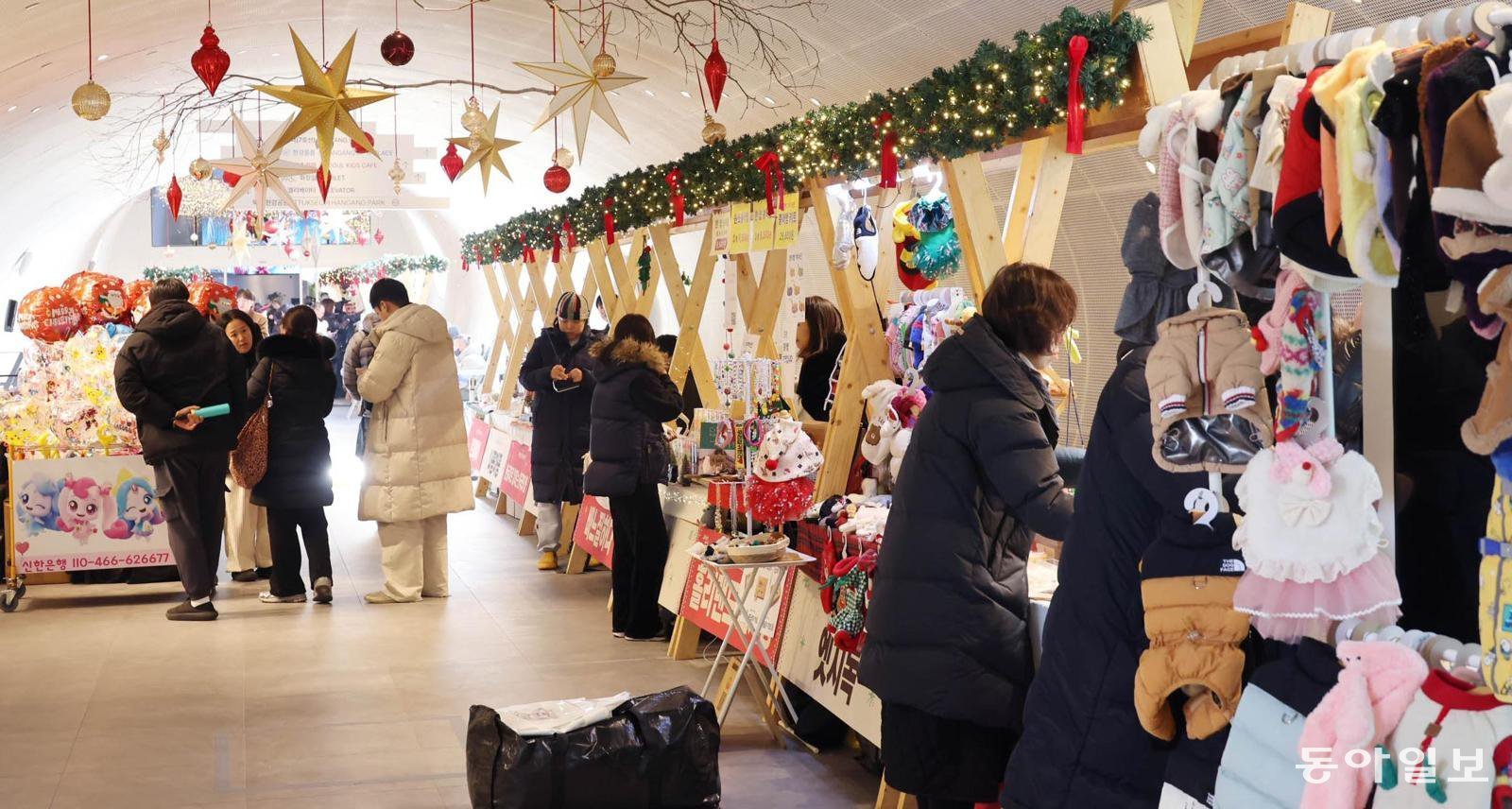Plummeting Economic Indexes Mirror Slumping Economy
Plummeting Economic Indexes Mirror Slumping Economy
Posted January. 31, 2009 19:06,
A series of economic indicators for last month reflect the deepening economic downturn.
Last year saw the current account balance swing back to the red for the first time since the financial crisis of 1997-98. The capital account suffered a record net outflow on the back of massive sell-offs of domestic stocks by foreign investors.
○ Simultaneous fall in output, consumption and investment
According to statistics on industrial activities last month released by the Korea National Statistical Office yesterday, production in mining and manufacturing plunged 18.6 percent from a year ago, the worst since the agency started compiling the statistic in Jan. 1970.
By industry, the main pillars of the countrys economy sustained the steepest fall. Production in semiconductors and parts plummeted 42.8 percent and that of the auto industry plunged 29.3 percent. Factory operating rates in manufacturing also slipped to 62.5 percent, the lowest since September 1980 (61.2 percent).
Sales of consumer goods fell seven percent in December 2008 from a year earlier, the steepest plunge since December 1998. Facility investment, which props up economic growth, also dropped 24.1 percent for the deepest fall since November 1998.
The sole bright spot was construction, with orders rising 33.5 percent last month from a year ago.
○ Lackluster exports worsen current account balance.
According to a preliminary report released by the Bank of Korea, Korea had a current account deficit of 6.41 billion U.S. dollars last year, well exceeding the banks estimate of 4.5 billion dollars.
The shortfall was blamed on the nosedive of the goods account surplus to 5.99 billion dollars last year from 28.17 billion dollars in 2007 due to soaring oil and raw material prices.
As the U.S.-triggered financial crisis prompted foreign investors to dump domestic stocks en masse, the deficit in the capital account widened to a record 50.93 billion dollars. The deficit in the two accounts was the first since the government began compiling such data in 1980.
This month is expected to see a trade deficit of 3.8 billion to four billion dollars due to sluggish exports and the suspension of factory operations in the Lunar New Year holidays. This will likely result in a current account deficit this month.
○ Economic stimulus needed
Bank of Korea Governor Lee Seong-tae yesterday told a meeting with business executives, The outlook for this years economic growth will differ depending on the judgment of economic contraction in the final quarter of last year."
"If one believes that the contraction is the beginning of a recession and the first and second quarters of this year will not be different, economic growth this year will surely remain in negative territory.
Experts interpreted Lees comments as the banks giving up of its growth projection of two percent. The bank is likely to significantly downgrade its 2009 growth forecast in April.
Kwon Soon-woo, a research fellow at Samsung Economic Research Institute, said, Given the acceleration of the economic slowdown at home and abroad, sapping exports are inevitable but the government must immediately present drastic pump-priming measures to stem aggravating domestic consumption.







